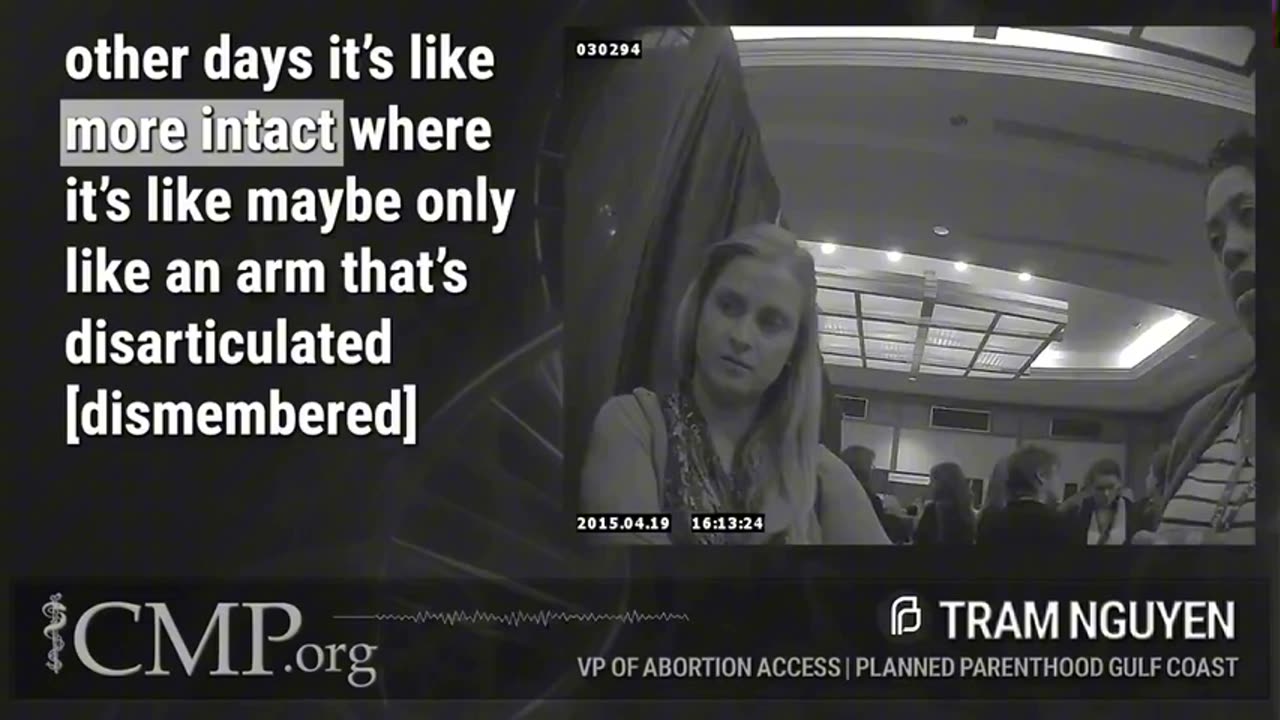Premium Only Content

The Dark Side of Medical Innovation: Unveiling the Ethics of Tissue Collection
Introduction: Unveiling the Shadows of Medical Advancements
In the annals of modern medicine, technological advancements have propelled us into an era where the boundaries between ethical medical practices and corporate greed are increasingly blurred. A recent investigation has uncovered shocking revelations about tissue collection practices that, while shrouded in secrecy, raise profound questions about the ethical implications of bioengineering and medical research.
This article delves into the murky waters of these practices, exposing the intricate web of corporate interests, medical ethics, and the stark realities of what occurs behind closed doors. While technological innovation continues to push the limits of what is possible in medicine, this progress may come at a price that society is only beginning to comprehend.
The Intersection of Medical Practice and Corporate Interest
At the heart of this investigation is the practice of tissue collection, a critical component of bioengineering and pharmaceutical research. The demand for human tissue, particularly from aborted fetuses, has spurred a burgeoning industry where ethical boundaries are often pushed to their limits.
For decades, medical institutions and research labs have depended on the procurement of human tissues to advance medical science. However, what was once a largely altruistic endeavor to save lives and improve health outcomes has morphed into a profit-driven enterprise. As new forms of tissue-based therapies emerge—ranging from regenerative medicine to the development of personalized drugs—the demand for specific tissues has skyrocketed.
Behind the Scenes: Conversations That Should Never Happen
In a series of recorded conversations that recently came to light, high-ranking officials within the medical field discussed the procurement and sale of fetal tissues in a manner that is as casual as it is chilling. These discussions reveal an unsettling normalization of practices that, if brought into the public eye, would likely incite widespread outrage.
Medical technicians and doctors candidly speak of tissue collection as if they were mere transactions, highlighting a growing detachment from the gravity of the procedures involved. The discussions often veer into the practical aspects of ensuring that the tissue specimens are “intact” and “usable,” with little to no regard for the ethical implications. The casual nature of these conversations is a stark reminder of how far the field has strayed from its ethical roots.
The Role of Biomass Technology in Tissue Engineering
One of the most controversial elements emerging from this investigation is the involvement of biomass technology companies. These entities have been working closely with medical institutions to refine the methods of tissue collection, preservation, and engineering. The potential for creating “tissue banks” stocked with ready-to-use human tissue for medical research and bioengineering purposes is both groundbreaking and deeply concerning.
As these companies pioneer new techniques for growing tissues and organs in vitro, they often rely on ethically dubious sources for their initial materials. The use of fetal tissues in these processes, particularly those obtained from late-term abortions, is a topic that has yet to receive the public scrutiny it deserves.
Ethical Concerns and the Slippery Slope of Medical Innovation
The central ethical dilemma here lies in the commodification of human tissue. What was once a sacred trust between patient and doctor—where donated tissue was used solely for the betterment of human health—has now transformed into an industry where human parts are bought and sold as commodities.
Critics argue that the moment human tissue becomes a commodity, the sanctity of human life is diminished. This perspective raises important questions about where the line should be drawn between necessary medical innovation and the exploitation of vulnerable populations.
The Future of Bioethics and Regulation
As these practices come to light, there is an urgent need for regulatory bodies to step in and reassess the frameworks governing tissue collection and usage. The lack of transparency in how tissues are obtained, preserved, and utilized for research and commercial purposes is a glaring issue that demands immediate attention.
Moreover, the increasing involvement of private companies in what were traditionally public health concerns underscores the necessity of stricter oversight. Without robust regulatory mechanisms, the potential for abuse in this sector is immense.
Conclusion: A Call for Reflection and Action
The revelations about the practices surrounding tissue collection and bioengineering are a sobering reminder that the quest for medical advancements can often come at a moral and ethical cost. As society continues to grapple with these issues, it is crucial that we engage in a broader discussion about the limits of medical innovation and the sanctity of human life.
This investigation should serve as a catalyst for change—prompting policymakers, medical professionals, and the public to reconsider the ethical implications of bioengineering and tissue collection practices. Only through such reflection can we ensure that the advancements in medicine serve the greater good without compromising our shared values of dignity and respect for human life.
-
 47:58
47:58
FragmentsOfTruth
1 day agoGlobal Adrenochrome Network? Reviewing the Controversial CYM Files
283 -
 8:31
8:31
MattMorseTV
6 hours ago $0.93 earnedTexas just did the IMPOSSIBLE.
35.2K57 -
 24:39
24:39
MYLUNCHBREAK CHANNEL PAGE
1 day agoInterdimensional Beings at Borobudur
46.4K27 -
 12:42
12:42
Scammer Payback
1 day agoCalling Scammers who were Raided
20.4K11 -
 23:31
23:31
IsaacButterfield
16 hours ago $0.06 earnedThe Woke Mob Is Really CANCELLING Matt Rife For THIS…
19.7K16 -
 1:23
1:23
WildCreatures
8 days ago $0.98 earnedThis mother armadillo eating her palm nuts is truly adorable
17.1K16 -
 8:59
8:59
The Art of Improvement
12 hours ago $0.02 earnedHow to Build the Most Powerful Mindset for Success
15.1K2 -
 1:26:16
1:26:16
Michael Franzese
21 hours agoMenendez Brothers Denied Parole – Newsom Holds Their Fate
120K94 -
 2:36:02
2:36:02
I_Came_With_Fire_Podcast
20 hours agoSecret Origins of Transhumanism & The New Atlantis
40.3K20 -
 4:37:28
4:37:28
sophiesnazz
6 hours ago $0.05 earnedLETS TALK ABOUT BO7 !socials !specs
17.6K6